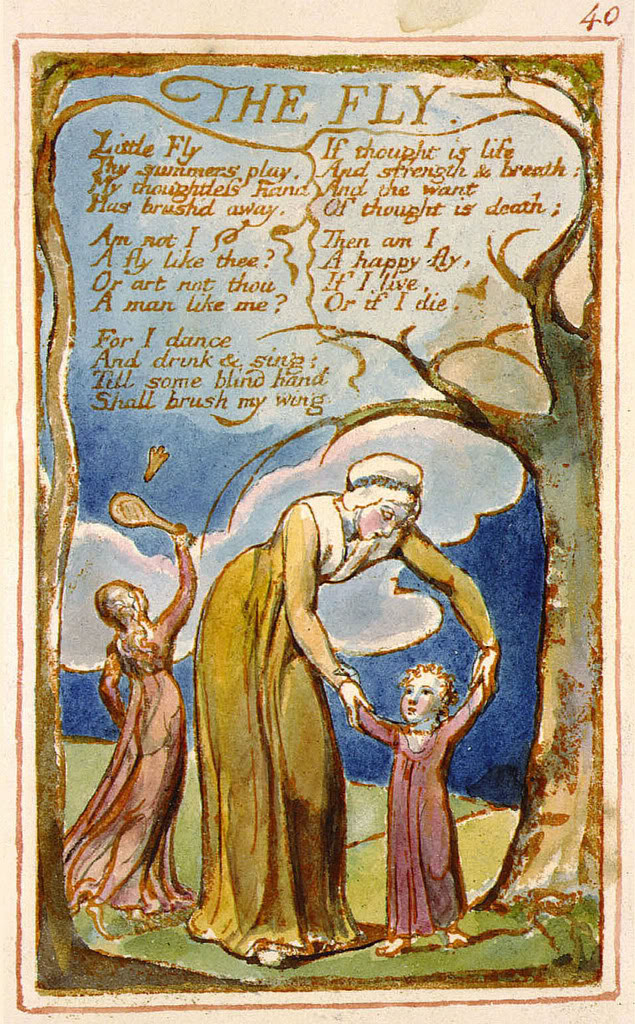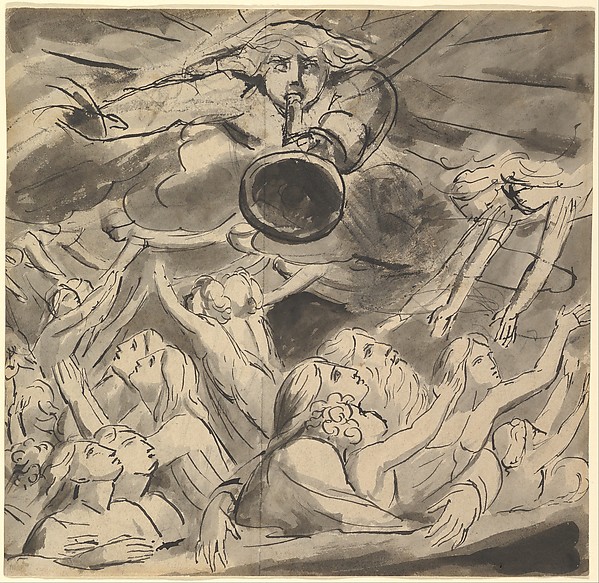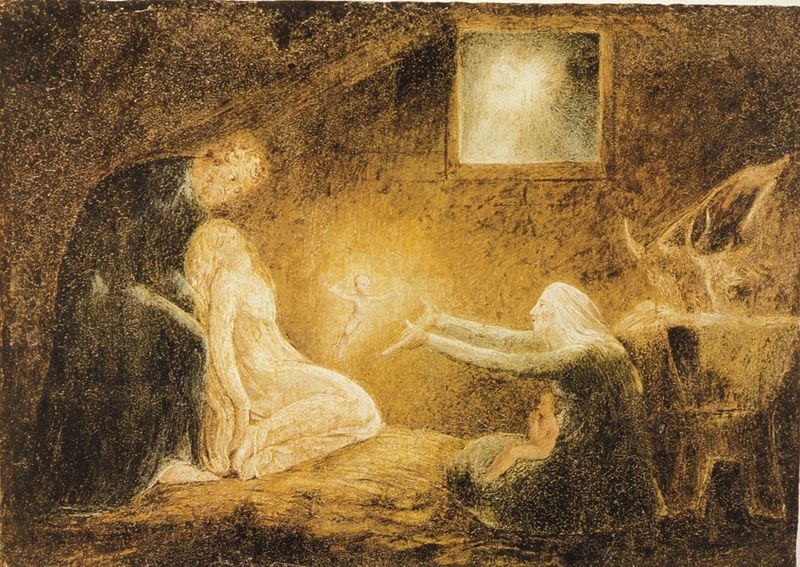SONGS OF EXPERIENCE, 40, THE FLY,(E 23)

Little Fly
Thy summers play,
My thoughtless hand
Has brush'd away.
Am not I
A fly like thee?
Or art not thou
A man like me?
For I dance
And drink & sing:
Till some blind hand
Shall brush my wing.
If thought is life
And strength & breath:
And the want
Of thought is death;
Then am I
A happy fly,
If I live,
Or if I die.
Man who knows himself to be a mind and spirit frequently seeks an explanation for his being a material being in a world of matter.
Here are some explanations which have been devised:
*It pleased God to have some companions.
*Man is being punished for some disobedience.
*Life is meant to be a learning experience.
*The material world spontaneously produced life including mind.
*We are placed here to figure out why we were placed here.
*We are paced here to love God and serve him forever.
*Matter is a manifestation and expression of Spirit.
Blake of course had his explanation which he expressed in poetic language. At the Golden Feast these words were spoken:
Four Zoas, Page 133, (E 401)
"This is the Generative world they rememberd the Days of old
And One of the Eternals spoke All was silent at the feast
Man is a Worm wearied with joy he seeks the caves of sleep
Among the Flowers of Beulah in his Selfish cold repose
Forsaking Brotherhood & Universal love in selfish clay
Folding the pure wings of his mind seeking the places dark
Abstracted from the roots of Science then inclosd around
In walls of Gold we cast him like a Seed into the Earth
Till times & spaces have passd over him duly every morn
We visit him covering with a Veil the immortal seed
With windows from the inclement sky we cover him & with walls
And hearths protect the Selfish terror till divided all
In families we see our shadows born. & thence we know | Ephesians
That Man subsists by Brotherhood & Universal Love | iii c.
We fall on one anothers necks more closely we embrace | 10 v
Not for ourselves but for the Eternal family we live
Man liveth not by Self alone but in his brothers face
Each shall behold the Eternal Father & love & joy abound
So spoke the Eternal at the Feast they embracd the New born Man
Calling him Brother image of the Eternal Father."
The Bible verse referenced in the passage in the Four Zoas:
Ephesians 3
[10] To the intent that now unto the principalities and powers in heavenly places might be known by the church the manifold wisdom of God,
The above verse in context:
[9] And to make all men see what is the fellowship of the mystery, which from the beginning of the world hath been hid in God, who created all things by Jesus Christ:
[10] To the intent that now unto the principalities and powers in heavenly places might be known by the church the manifold wisdom of God,
[11] According to the eternal purpose which he purposed in Christ Jesus our Lord:
I think that you can say unequivocally that Blake does not think that life in the physical world is a punishment. Blake affirms that God in his love presents man with life as a mercy, grace and gift. Time and matter are gifts too, to incubate the seed which is to grow into a replica and brother of the Eternal Father.
.jpg)






